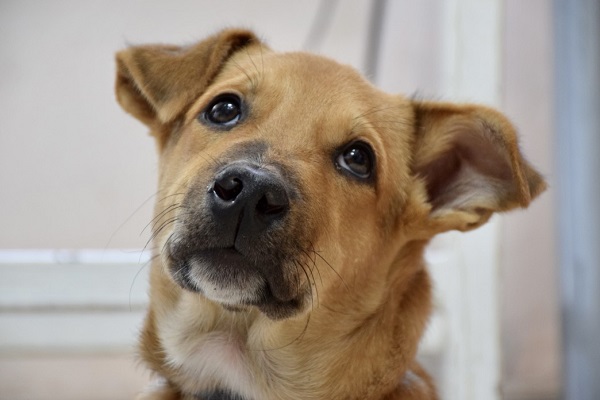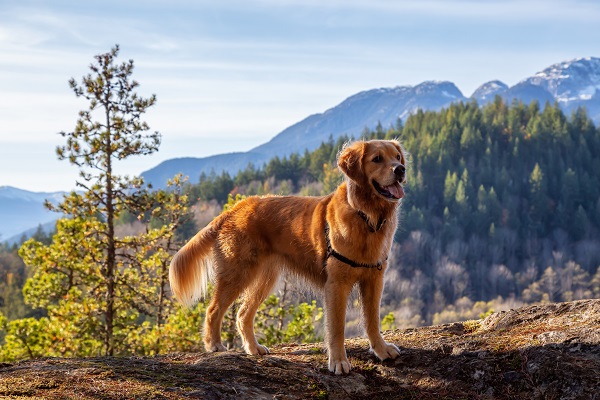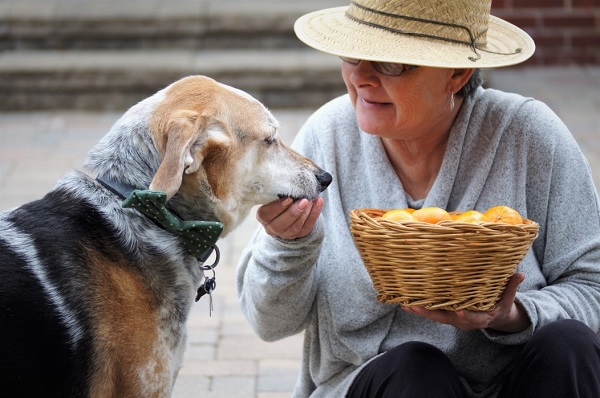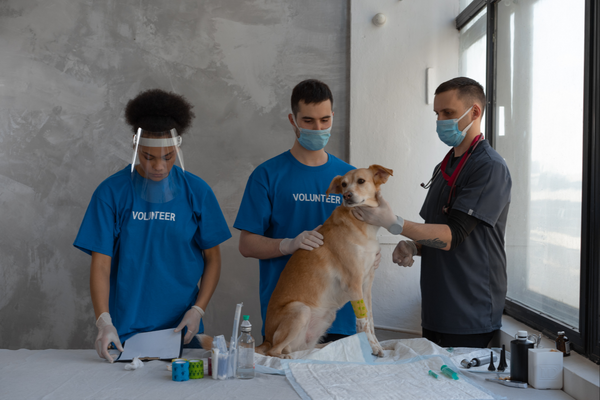Sometimes, you may see your dog’s nose dry and wonder why it is so. As far as sniffing goes, a dog does it easy when its nose is wet rather than dry. Dogs’ noses are wet because they have a combination of mucosal glands.
Your dogs also lick their noses quite often, which is also a significant reason. People tend to think that if their dog’s nose is dry, they may be ill.
There are several reasons your dog may have a dry nose, such as being outside on a sunny and hot day.
Question: Why do they eat poop?
Answer: We may think that dogs eating their poop is gross. However, for them, it is instinctive. Usually, dog mamas in the wild tend to eat the poop of their kids because that is the way she knows to clean it up.
Besides cleaning the den, this helps protect the babies from predators lurking nearby that may attract them due to the smell. Puppies also learn this behavior from their mums due to their natural sense of curiosity.
Question: Why do dogs stare at us – their parents?
Answer: We may think that our dog is staring at us because of the unending love and devotion they have for us. However, there are a couple of other reasons they are doing so.
They are either trying to find out what you want from them or perhaps they want something from you. For example, they want food, a walking treat, or playtime with you. In the first case, it could be during training.
Question: Why do they howl?
Answer: You may be thinking dog howls when they seem to be connecting with the wolf in them. However, it is merely a way a dog communicates with others of its kind.
In that sense, it is just like the other noises they make, such as whining and barking. They also use these noises to communicate with us humans.
At times, dogs also howl to mark their territory or make their presence known. At times, they may also be doing so to get some attention. For example, they may wail when they hear high-pitched or loud noises.
Question: Why do they eat grass?
Answer: There is no common consensus about this question – various research institutions and veterinary doctors have their take on the issue. Many people opine that dogs eat grass when they get stomach aches. They do so to throw up.
At times, dogs are said to take to the grass to fulfill a nutritional deficit they may have in fiber. However, as per reports of pet parents, not over 10% of dogs who eat grass appear to be unwell before they do so. Only around 25% of dogs vomit after they have eaten grass.
Question: Why do dogs lick you?
Answer: Licking is a form of communication for dogs, just as howling and barking are. Dogs, by instinct, are predisposed to licking right from birth.
It starts with mamas licking their pups to care for and feed them. When dogs grow up, this habit becomes a gesture of submission.
They are also supposed to like the salty taste of our skin. So dogs kiss us right after a workout or some other similarly strenuous physical activity.
Question: How do you stop them from barking?
Answer: This question has been there right from the start of this particular relationship. The answer to this question is proper training. In most cases, dogs bark to alert their parents or other dogs about something that interests them.
It could be anything under the Sun – a squirrel, a cat, a deer, or the mail delivery person. There are several methods by which you can teach your dogs not to bark. First, with positive reinforcement training, you teach your dog to ignore outside distractions and reward such behavior with treats.
Question: What are the right vaccinations for them?
Answer: Just as is the case with humans, canine immunization shots can be categorized into optional and necessary. The laws depend on the state in the USA (United States of America). However, at the very least, they should get the rabies vaccine each year.
It is a fatal disease for all, and the vaccine should help reduce the spread. As per the ASPCA (American Society for Prevention of Cruelty to Animals), this is a part of core vaccines for dogs and canine parvovirus, adenovirus-2, and distemper virus.
Question: Should their teeth be brushed?
Answer: The answer to this question would be a yes and an absolute one! Dental care is just as important for dogs as vaccination and the other preventive measures you take for your pets. Like humans, plaques and tartar could build up in dogs’ teeth.
They can travel underneath the gum line once they have built up. At a basic level, this could cause periodontitis and gingivitis. In extreme cases, this could translate to blood infections as well.
Question: How often should they be bathed?
Answer: Cats tend to clean themselves by licking themselves. Dogs do the same thing, but the results are never good. Compared to cats in pristine condition when indoors, your dog could get dirty.
It is especially true for individuals who spend a lot of time outdoors. So, you would have to bathe your dog frequently to keep them healthy and clean. The ideal bathing time is whenever they get noticeably dirty or at least once in four weeks.
Question: What is the average lifespan of a dog?
Answer: The average lifespan of a dog is around 10-13 years, but this can vary depending on the breed, size, and overall health of the individual dog.
Question: How often should I take my dog to the vet?
Answer: Dogs should see a vet at least once a year for a routine checkup and vaccinations. However, if your dog has any health concerns or issues, you should take them to the vet as soon as possible.
Question: What are some common health issues in dogs?
Answer: Some common health issues in dogs include allergies, skin infections, ear infections, dental problems, obesity, and arthritis.
Question: What should I feed my dog?
Answer: Dogs should be fed a balanced diet with protein, carbohydrates, and fats. It’s best to choose high-quality dog food appropriate for your dog’s age, size, and activity level.
Question: How often should I walk my dog?
Answer: Dogs should be walked at least once a day, but some breeds and individual dogs may require more exercise than that.
Question: How can I socialize with my dog?
Answer: Socialization is important for dogs to learn appropriate behavior around other dogs and people. Gradual exposure to new experiences and positive reinforcement for good behavior can help socialize dogs.
Question: How can I keep my dog safe?
Answer: To keep dogs safe, ensure that they have proper identification, are up-to-date on vaccinations, are trained to obey basic commands, and are kept on a leash or in a secure area when outside.

 DogExpress
DogExpress


















 in Chandigarh, India.
in Chandigarh, India. 
